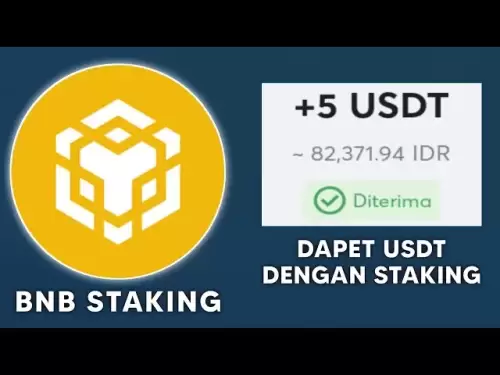-
 Bitcoin
Bitcoin $103,838.1703
5.33% -
 Ethereum
Ethereum $2,364.7328
10.94% -
 Tether USDt
Tether USDt $1.0007
0.03% -
 XRP
XRP $2.0950
9.02% -
 BNB
BNB $634.7170
5.25% -
 Solana
Solana $142.0264
11.70% -
 USDC
USDC $1.0000
0.00% -
 TRON
TRON $0.2728
5.18% -
 Dogecoin
Dogecoin $0.1598
10.80% -
 Cardano
Cardano $0.5655
9.94% -
 Hyperliquid
Hyperliquid $37.8554
11.16% -
 Sui
Sui $2.7196
17.77% -
 Bitcoin Cash
Bitcoin Cash $458.7795
4.67% -
 Chainlink
Chainlink $12.4271
12.53% -
 UNUS SED LEO
UNUS SED LEO $9.0769
0.74% -
 Avalanche
Avalanche $17.7117
12.43% -
 Stellar
Stellar $0.2392
9.83% -
 Toncoin
Toncoin $2.8765
9.58% -
 Shiba Inu
Shiba Inu $0.0...01131
11.69% -
 Litecoin
Litecoin $84.0378
9.79% -
 Hedera
Hedera $0.1456
14.65% -
 Monero
Monero $305.0298
5.16% -
 Ethena USDe
Ethena USDe $1.0006
0.03% -
 Dai
Dai $1.0001
0.02% -
 Polkadot
Polkadot $3.3522
10.31% -
 Bitget Token
Bitget Token $4.0785
3.25% -
 Uniswap
Uniswap $6.7682
13.08% -
 Pepe
Pepe $0.0...09557
13.29% -
 Pi
Pi $0.5253
9.79% -
 Aave
Aave $250.5247
16.65%
What is the difference between spot leverage and contract trading?
Spot leverage trading, involving direct trading of cryptocurrencies with borrowed funds, differs from contract trading in its underlying asset, settlement process, and mechanisms for implementing leverage.
Dec 03, 2024 at 09:08 pm

What is the Difference Between Spot Leverage and Contract Trading?
Understanding the nuances between spot leverage trading and contract trading is crucial for traders seeking to navigate the complexities of the cryptocurrency market effectively. Spot leverage trading involves borrowing funds from an exchange to amplify trading positions, while contract trading entails speculating on the future price of an asset through derivatives such as futures and perpetual contracts.
Key Distinctions:
- Underlying Asset: Spot leverage trading directly involves the spot market, where traders buy or sell underlying cryptocurrencies. In contrast, contract trading operates on derivative markets, where the underlying asset is not directly traded.
- Settlement: Spot leverage trades are settled immediately, resulting in the exchange of the underlying cryptocurrency between traders. On the other hand, contract trading involves a future settlement date, where the contract holder can either take physical delivery of the underlying asset or settle in cash.
- Leverage: Both spot leverage trading and contract trading offer leverage, but the mechanisms differ. Spot leverage is applied directly to the trader's position, while contract leverage is incorporated into the contract itself.
Spot Leverage Trading:
1. Margin Requirements:
Traders must maintain a certain amount of margin, a collateral that serves as a buffer against potential losses. Margin requirements vary depending on the exchange and the specific cryptocurrency being traded.
2. Risk Management:
Spot leverage trading amplifies both profits and losses. Hence, traders must employ sound risk management strategies, such as setting stop-loss orders, to mitigate risks.
3. Trading Fees:
Spot leverage trading typically involves commissions or fees charged by the exchange. These fees can vary depending on the trading volume and the exchange platform.
4. Market Volatility:
Spot leverage trading is directly affected by the volatility of the underlying cryptocurrency. High volatility can lead to significant price fluctuations, impacting the profitability and risk of the trade.
Contract Trading:
1. Futures Contracts:
Futures contracts are agreements to buy or sell an underlying asset at a predetermined price on a specific future date. They provide leverage and can be used for hedging or speculative trading.
2. Perpetual Contracts:
Perpetual contracts are similar to futures contracts but do not have a fixed expiration date. They allow traders to maintain open positions indefinitely, providing flexibility and potential for long-term trading strategies.
3. Margin Trading:
Contract trading also involves margin trading, where traders borrow funds to increase their trading positions. Margin requirements vary depending on the type of contract and the exchange platform.
4. Basis:
The basis is the difference between the spot price and the futures price. It reflects the market's expectations about the future price of the underlying asset and can influence trading decisions.
Ranking and Introduction to Key Differences:
1. Liquidity: Spot leverage trading typically offers higher liquidity compared to contract trading, as it involves direct trading of the underlying cryptocurrency.
2. Risk: Contract trading can be riskier than spot leverage trading due to the use of leverage and the potential for price fluctuations until the contract's expiration or settlement.
3. Trading Strategies: Spot leverage trading is suitable for short-term and day trading strategies, while contract trading can accommodate both short-term and longer-term trading strategies.
4. Scalability: Spot leverage trading allows for more granular control over trading positions, while contract trading may have minimum order sizes that can limit scalability for smaller traders.
5. Complexity: Contract trading can be more complex than spot leverage trading, as it involves additional concepts such as futures curves, basis, and contract specifications.
6. Leverage Ratio: The leverage ratio in contract trading is typically higher than in spot leverage trading, allowing traders to control a larger notional position with a smaller amount of capital.
7. Fees and Commissions: Fees and commissions in contract trading vary depending on the exchange, the type of contract, and the trading volume. Spot leverage trading may involve lower or simpler fee structures.
Disclaimer:info@kdj.com
The information provided is not trading advice. kdj.com does not assume any responsibility for any investments made based on the information provided in this article. Cryptocurrencies are highly volatile and it is highly recommended that you invest with caution after thorough research!
If you believe that the content used on this website infringes your copyright, please contact us immediately (info@kdj.com) and we will delete it promptly.
- Bitcoin Scaling Showdown: Lightning Network, Sztorc, and the Future of Payments
- 2025-06-24 04:25:12
- Cathie Wood, ARK Invest, and Circle Shares: A Wild Ride on the Stablecoin Wave
- 2025-06-24 04:25:12
- Download 2025: Live Review Through Martha's Lens
- 2025-06-24 04:32:10
- Turtle Club Joins Kaito Leaderboard: A New Era for Ecosystem Push
- 2025-06-24 04:35:12
- Crypto Penny Coins: Hunting for Monster Gains in 2025
- 2025-06-24 02:45:12
- Ethereum Whale Dips Into Crashing ETH: Smart Move?
- 2025-06-24 02:25:12
Related knowledge
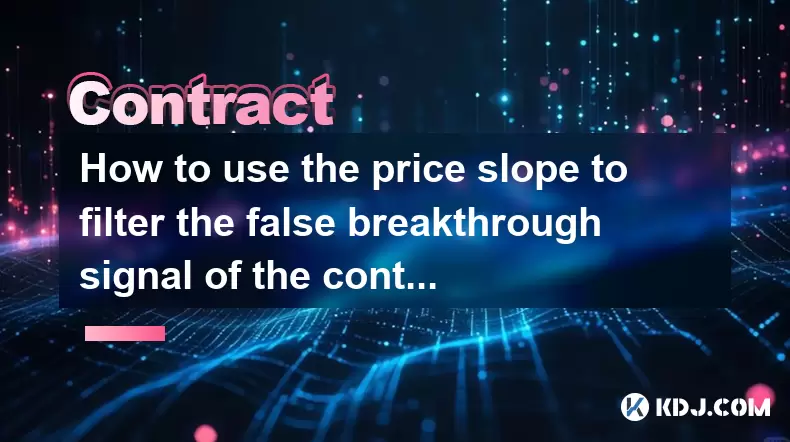
How to use the price slope to filter the false breakthrough signal of the contract?
Jun 20,2025 at 06:56pm
Understanding the Concept of Price Slope in Contract TradingIn contract trading, especially within cryptocurrency derivatives markets, price slope refers to the rate at which the price changes over a specific time period. It helps traders assess the strength and sustainability of a trend. A steep slope may indicate strong momentum, while a shallow slope...
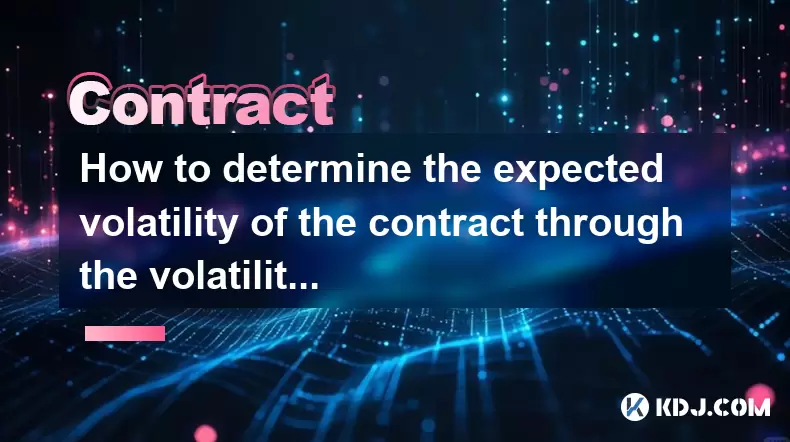
How to determine the expected volatility of the contract through the volatility cone?
Jun 19,2025 at 12:28pm
Understanding the Basics of Volatility in Cryptocurrency ContractsIn the realm of cryptocurrency trading, volatility is a key metric that traders use to assess potential risk and reward. When dealing with futures contracts, understanding how volatile an asset might become over time is crucial for position sizing, risk management, and strategy developmen...
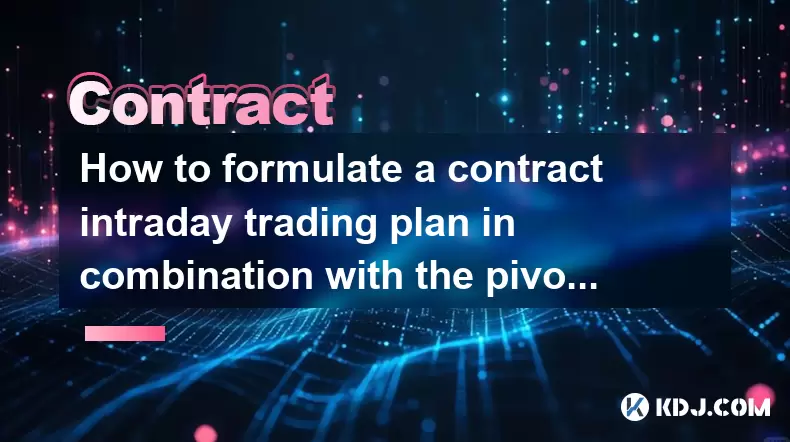
How to formulate a contract intraday trading plan in combination with the pivot point system?
Jun 21,2025 at 03:42pm
Understanding the Basics of Pivot Points in Cryptocurrency TradingPivot points are technical analysis tools used by traders to identify potential support and resistance levels. These levels are calculated using the previous day's high, low, and closing prices. In the context of cryptocurrency trading, where markets operate 24/7, pivot points help trader...
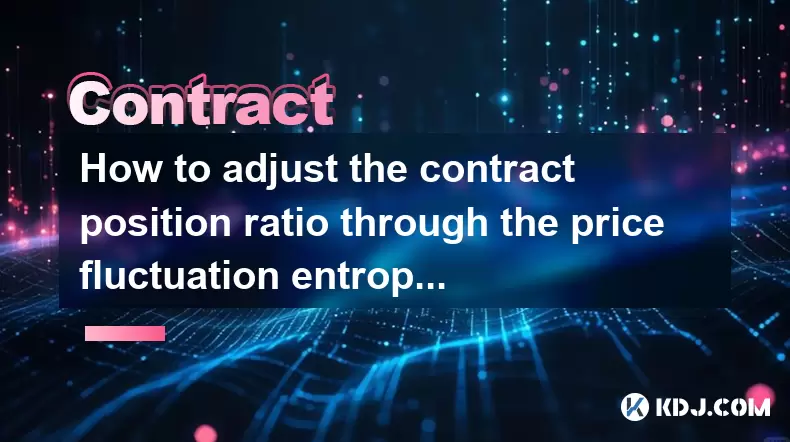
How to adjust the contract position ratio through the price fluctuation entropy?
Jun 22,2025 at 11:42am
Understanding Price Fluctuation Entropy in Cryptocurrency ContractsIn the world of cryptocurrency futures trading, price fluctuation entropy is a relatively new concept used to measure market volatility and uncertainty. It derives from information theory, where entropy refers to the degree of randomness or unpredictability in a system. In crypto contrac...
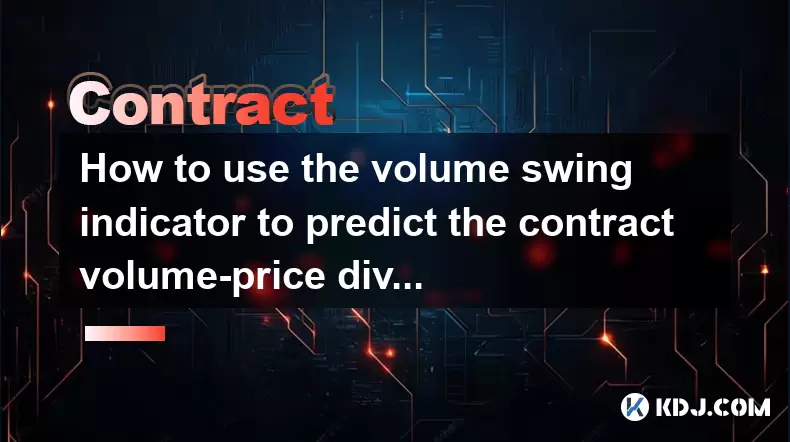
How to use the volume swing indicator to predict the contract volume-price divergence?
Jun 18,2025 at 11:42pm
Understanding the Volume Swing IndicatorThe volume swing indicator is a technical analysis tool used primarily in cryptocurrency trading to evaluate changes in volume over time. Unlike price-based indicators, this metric focuses solely on trading volume, which can provide early signals about potential market reversals or continuations. The key idea behi...

How to use the Gaussian channel to set the contract trend tracking stop loss?
Jun 18,2025 at 09:21pm
Understanding the Gaussian Channel in Cryptocurrency TradingThe Gaussian channel is a technical indicator used primarily in financial markets, including cryptocurrency trading, to identify trends and potential reversal points. It is based on statistical principles derived from the normal distribution, commonly known as the Gaussian distribution or bell ...

How to use the price slope to filter the false breakthrough signal of the contract?
Jun 20,2025 at 06:56pm
Understanding the Concept of Price Slope in Contract TradingIn contract trading, especially within cryptocurrency derivatives markets, price slope refers to the rate at which the price changes over a specific time period. It helps traders assess the strength and sustainability of a trend. A steep slope may indicate strong momentum, while a shallow slope...

How to determine the expected volatility of the contract through the volatility cone?
Jun 19,2025 at 12:28pm
Understanding the Basics of Volatility in Cryptocurrency ContractsIn the realm of cryptocurrency trading, volatility is a key metric that traders use to assess potential risk and reward. When dealing with futures contracts, understanding how volatile an asset might become over time is crucial for position sizing, risk management, and strategy developmen...

How to formulate a contract intraday trading plan in combination with the pivot point system?
Jun 21,2025 at 03:42pm
Understanding the Basics of Pivot Points in Cryptocurrency TradingPivot points are technical analysis tools used by traders to identify potential support and resistance levels. These levels are calculated using the previous day's high, low, and closing prices. In the context of cryptocurrency trading, where markets operate 24/7, pivot points help trader...

How to adjust the contract position ratio through the price fluctuation entropy?
Jun 22,2025 at 11:42am
Understanding Price Fluctuation Entropy in Cryptocurrency ContractsIn the world of cryptocurrency futures trading, price fluctuation entropy is a relatively new concept used to measure market volatility and uncertainty. It derives from information theory, where entropy refers to the degree of randomness or unpredictability in a system. In crypto contrac...

How to use the volume swing indicator to predict the contract volume-price divergence?
Jun 18,2025 at 11:42pm
Understanding the Volume Swing IndicatorThe volume swing indicator is a technical analysis tool used primarily in cryptocurrency trading to evaluate changes in volume over time. Unlike price-based indicators, this metric focuses solely on trading volume, which can provide early signals about potential market reversals or continuations. The key idea behi...

How to use the Gaussian channel to set the contract trend tracking stop loss?
Jun 18,2025 at 09:21pm
Understanding the Gaussian Channel in Cryptocurrency TradingThe Gaussian channel is a technical indicator used primarily in financial markets, including cryptocurrency trading, to identify trends and potential reversal points. It is based on statistical principles derived from the normal distribution, commonly known as the Gaussian distribution or bell ...
See all articles






















